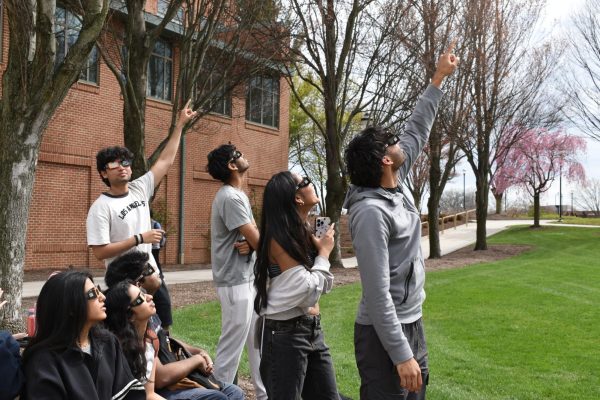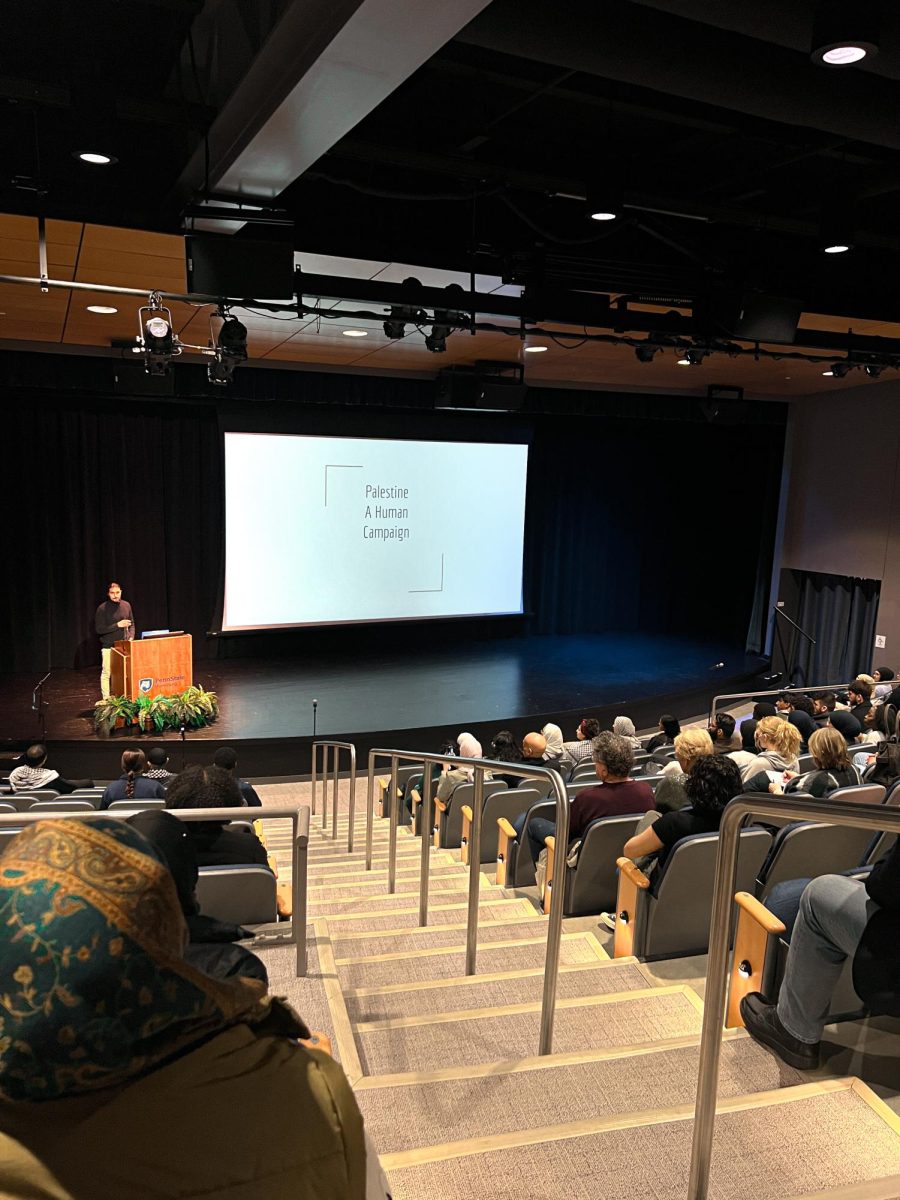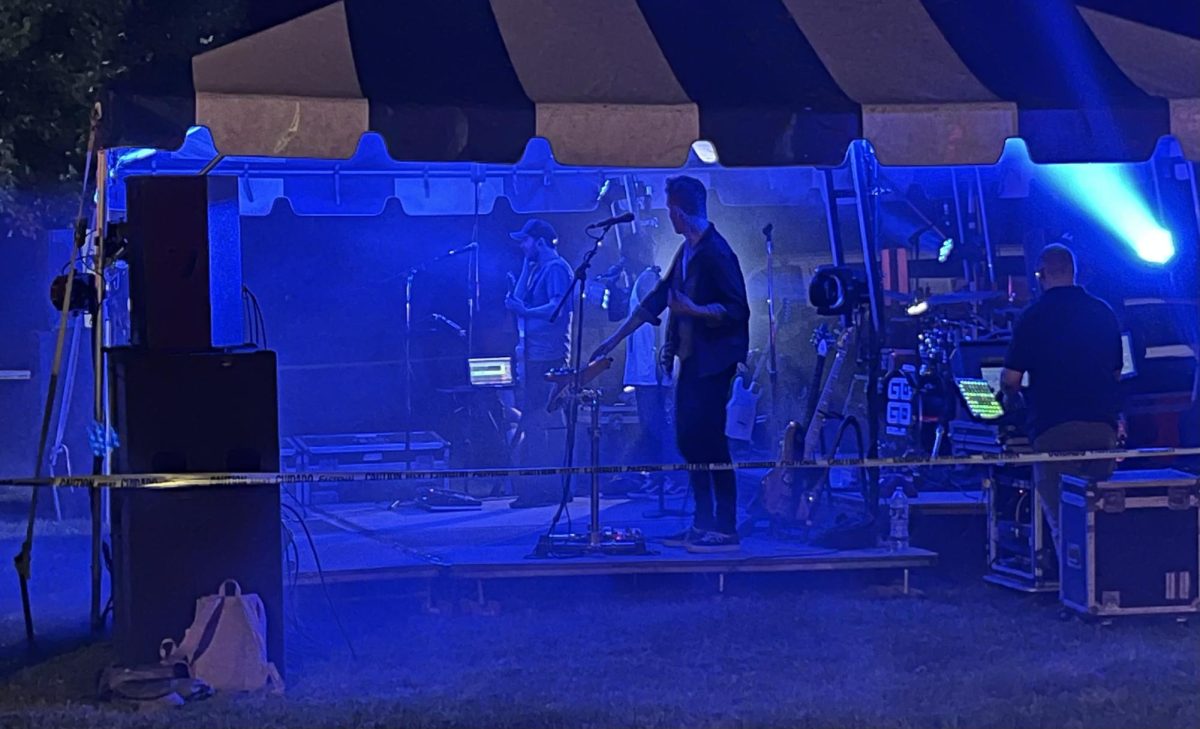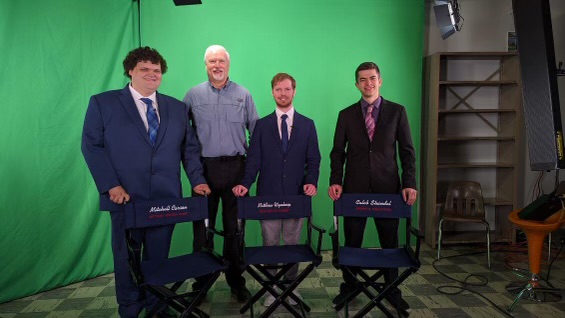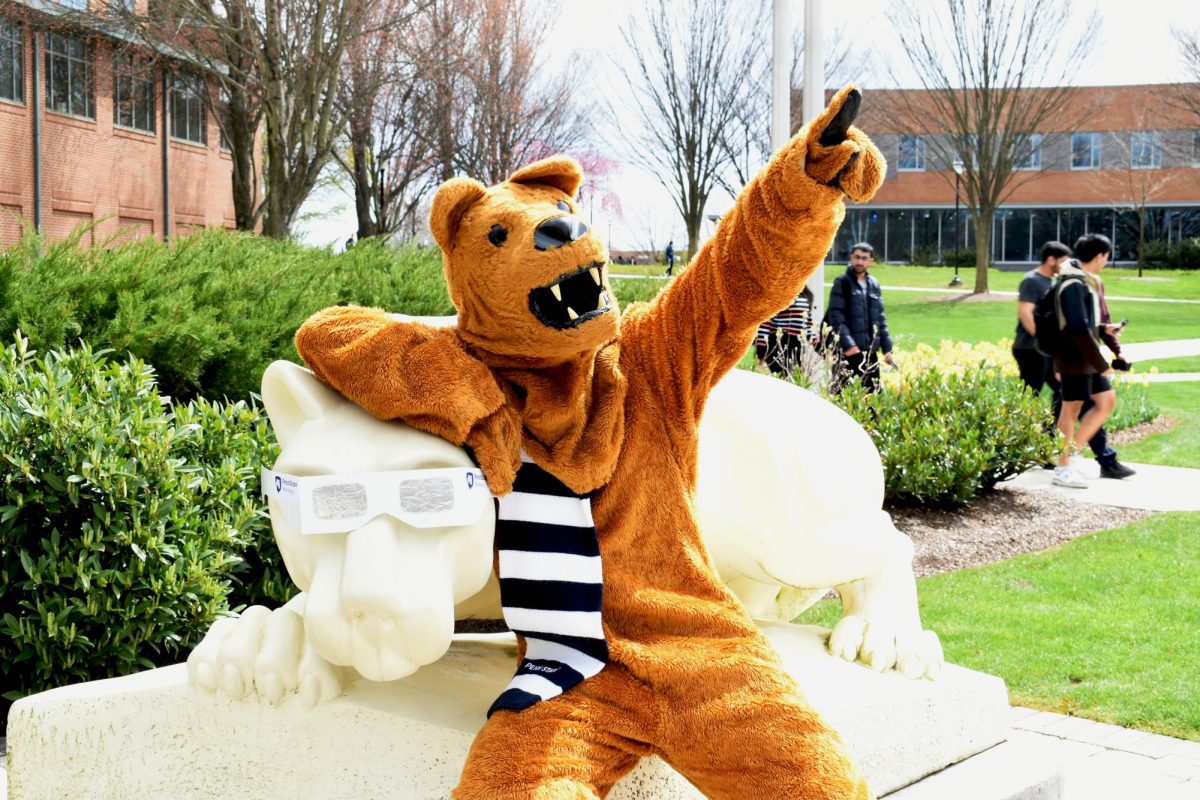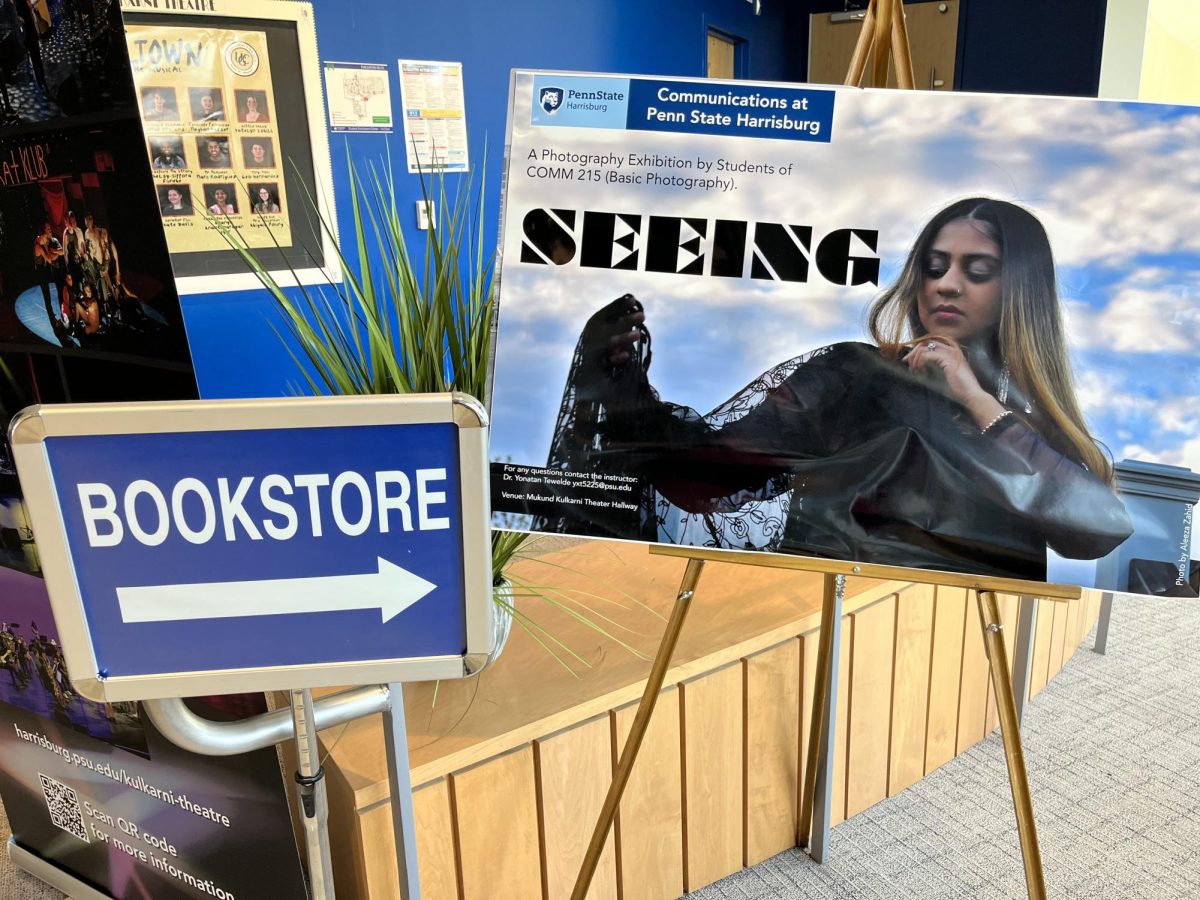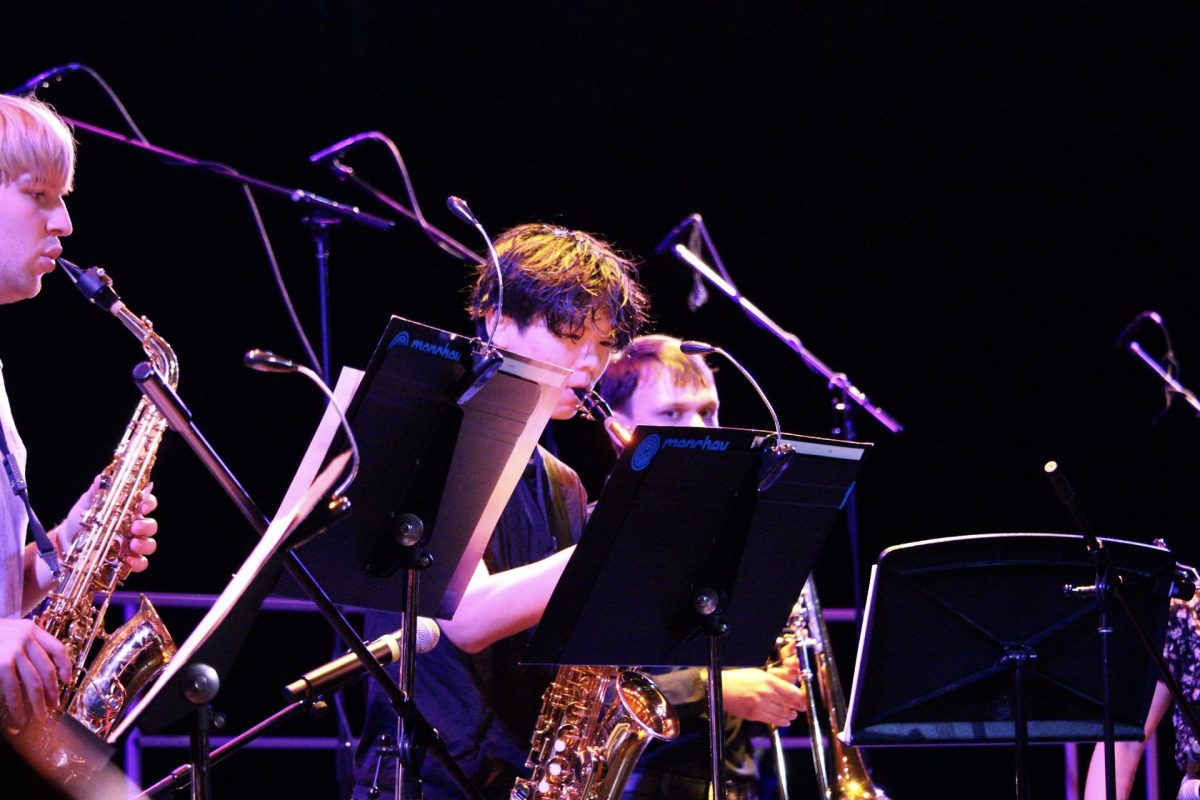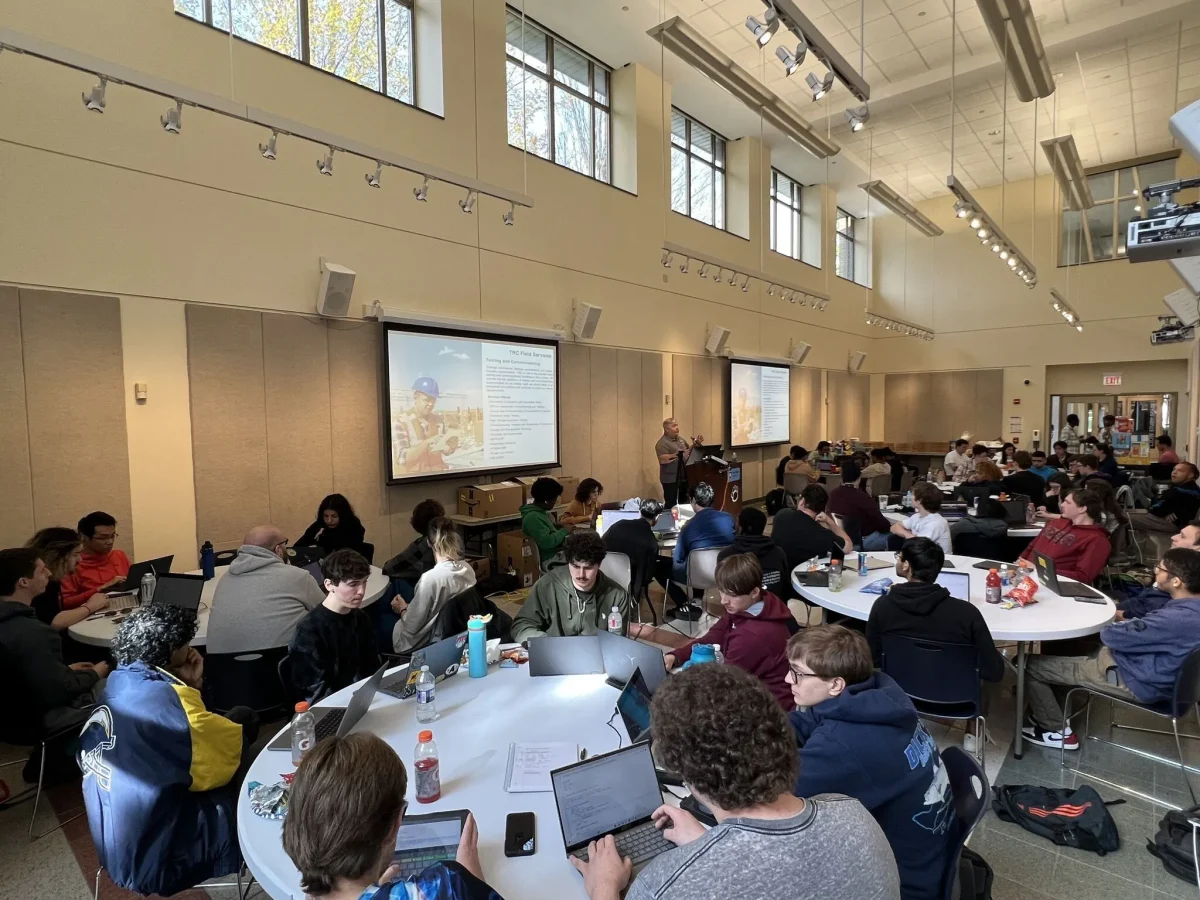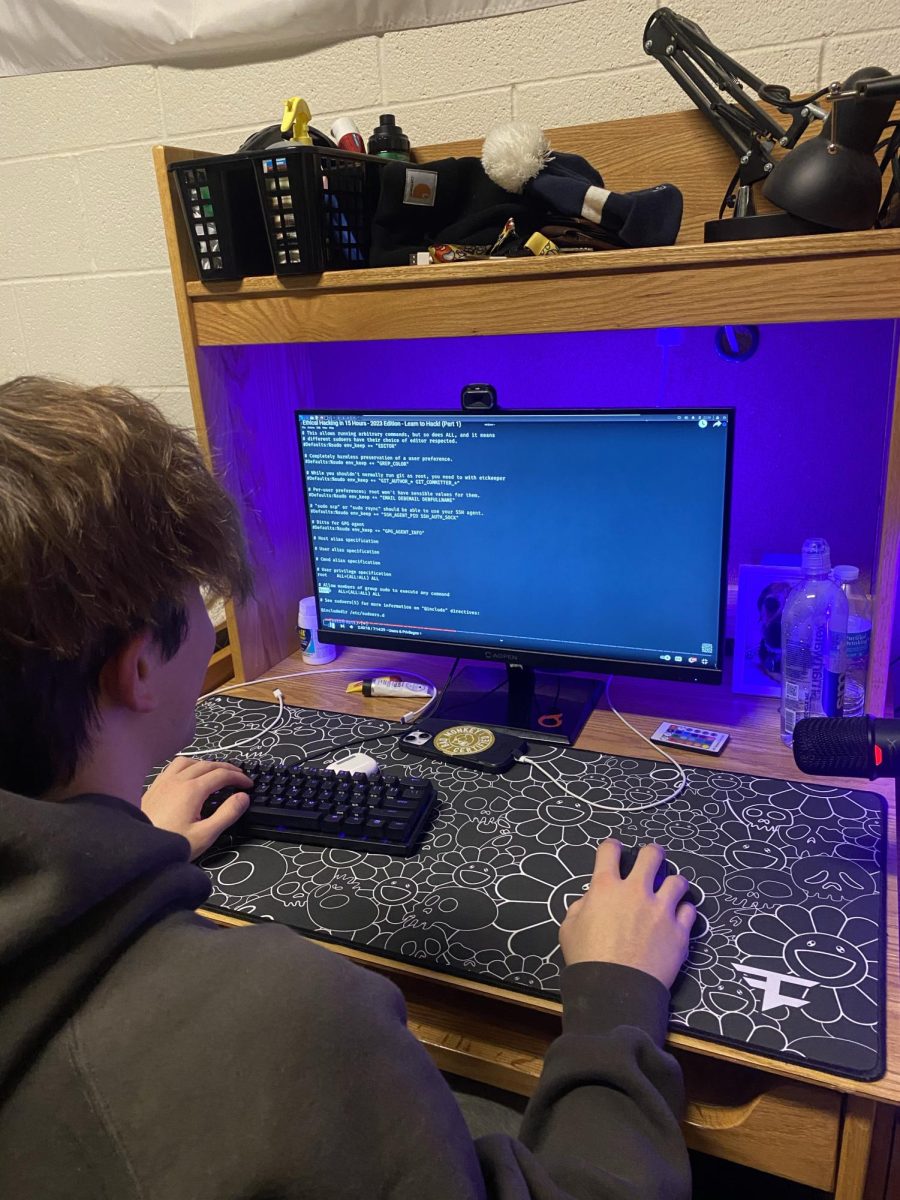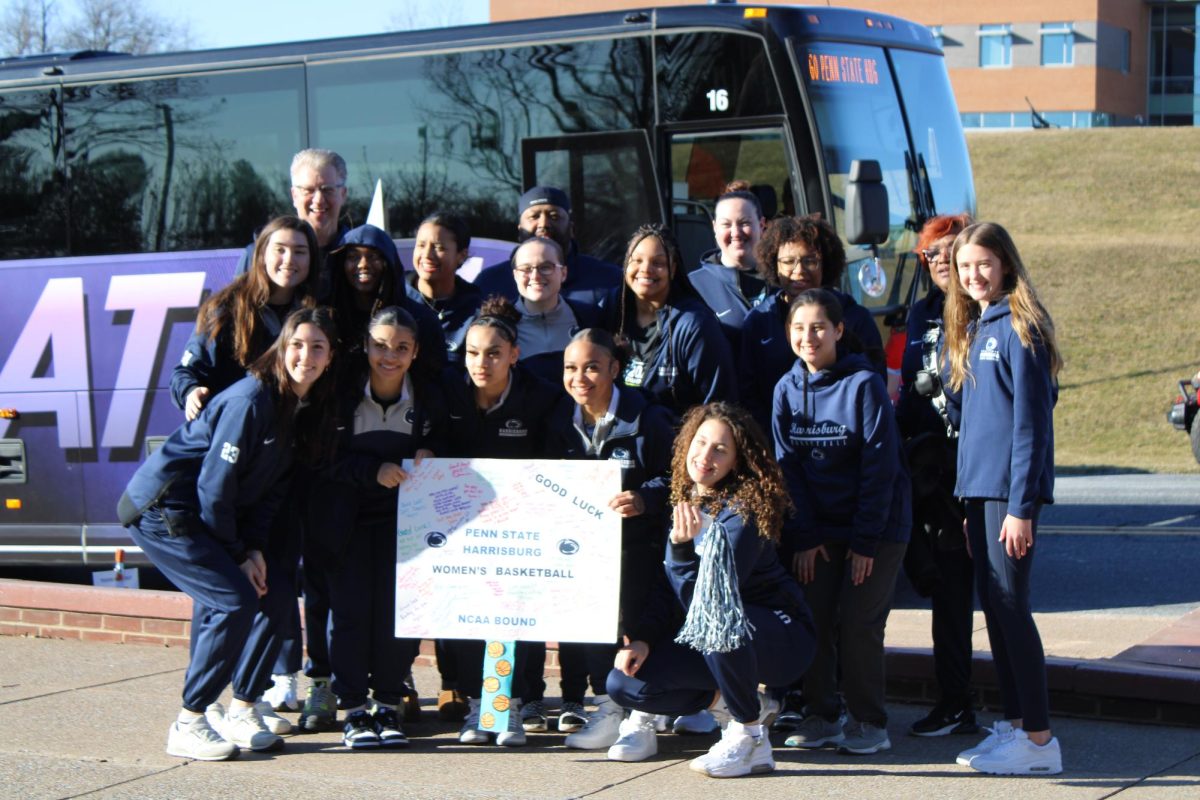The United States experienced a rare occurrence on April 8 when a total solar eclipse took over the skies in different parts of the country. In Pennsylvania, the closest area of totality was Erie.
It will be roughly 20 years until the next solar eclipse in the United States happens. This eclipse will only reach about three states: Montana, North Dakota, and South Dakota. Luckily for those living in Pennsylvania, residents saw a glimpse of the current solar eclipse in 2024.
Penn State Harrisburg admired the solar eclipse that happened at 3:23 pm. This scenic experience took place in the Vartazan Plaza. The Astronomy club coordinated a destination for others to join and watch the eclipse. The safety of students is the school’s priority, and solar glasses were passed around to students to protect their eyes. It was a requirement to wear while watching the eclipse in person.
The President of the Astronomy Club is Noah Massari. He had set up equipment outside on campus for all students, faculty, and staff to look through to see the solar eclipse.
“I joined the astronomy club because I wanted to get more involved with club activities on campus. I’ve always had an interest in astronomy as a kid and I saw that the astronomy club was looking for officers to help revive the club, so I stepped up and offered my skills. I became president because I wanted to test my leadership skills and run the club the best way I see fit,” Massari said.
“Nothing beats watching people see Jupiter or Saturn through a telescope. Their excitement never gets old! It was quite incredible watching that eclipse! Although we weren’t in totality, it was still quite awesome to experience an event like that,” he added.
Penn State Harrisburg is located in Dauphin County, so students were only able to witness a 94% eclipse rather than the full 100%. There was a slight dimming of the sky, but unfortunately not the full pitch black that would have occurred with a total eclipse.
Logan Saunders, who is a member of the astronomy club, shared why he joined the club and what he loves about the organization.
“I joined the Astronomy Club because I love anything space-related. Space is stunningly beautiful, from the vibrant colors of nebulae to the turbulent cloud bands on Jupiter. When looking at an object like the Andromeda Galaxy, that galaxy alone has over a trillion stars. You must wonder what’s out there,” Saunders explained.
The Astronomy Club is known for its involvement in various astronomy-related activities on campus. Some activities include cosmology, astrophotography, amateur astronomy, and astrophysics. Students are welcomed and encouraged to participate in more than just a solar eclipse. There is photography, star gazing, astronomical observations, and trips to local observatories. There is not a specific major that you need to be involved in to join the Astronomy Club. It is open to any and all students who are interested.
